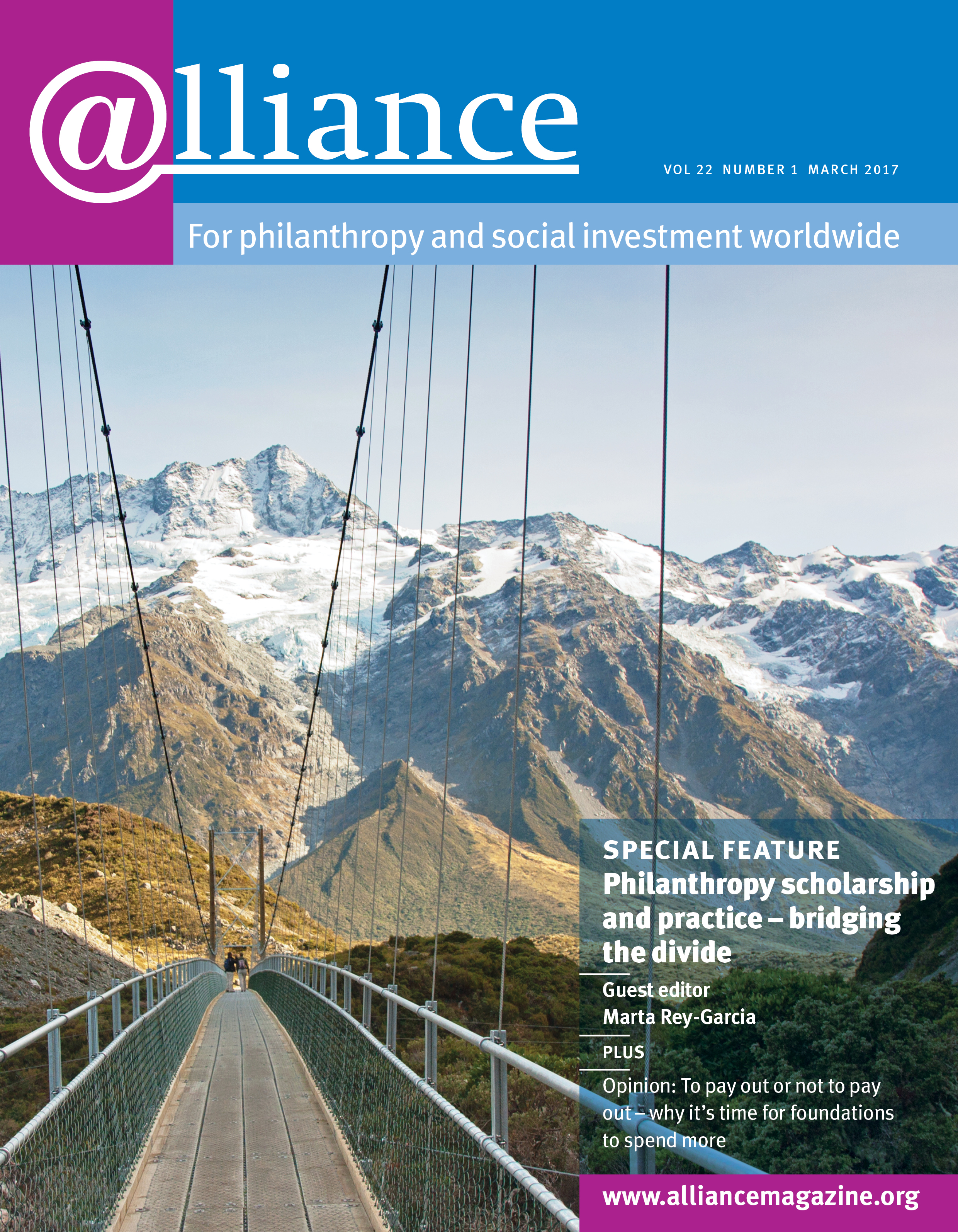The December issue of Alliance focused on the topic of community philanthropy and the concept of ‘durable development’ – shifting power closer to the ground and giving agency to local people and their organizations. Aisha Mansour responds to David Jacobstein’s article ‘USAID embraces community philanthropy’.
David Jacobstein describes USAID’s shift towards supporting community development through a community philanthropy context. USAID, he continues, has adopted a local systems framework to support communities to address their own priorities within an inclusive and accountable process.
While this is all good, USAID falls short in the implementation. In Palestine, for example, USAID often implements large projects by contracting US-based private companies who then establish project offices in the recipient countries. Project priorities, activities and budgets are already determined prior to actual implementation. And while there may be some consultation with local stakeholders, the community has not been included in determining the priorities, nor in identifying the necessary budgets and available local resources, including the technical expertise.
USAID procurement rules often require the procurement of US goods and services rather than local. Further, USAID policies require the vetting of each individual benefiting from the project, so limiting the inclusivity as certain individuals within a community may be deemed ineligible due to their grassroots activism or membership of a particular political party.
While USAID has adopted important principles to empower communities, it has missed the point in community philanthropy. There are no donors or beneficiaries in community philanthropy. Everyone is equal and welcome to the table to discuss and address community priorities. USAID must reform its organizational systems and policies in order to truly support a community philanthropy model in the countries where it works.
Aisha Mansour
Chief executive, Dalia Association
On the same topic of community philanthropy: ‘How to be effective and responsive to communities?’ by Chandrika Sahai, ‘Impact of new approaches needs to be demonstrated’ by Anna Wansbrough-Jones, ‘Strengthening the bonds of civil society’ by Aimi Zhou and Ine Van Severen, ‘Measuring small-scale contributions to the SDGs’ by Dana Doan, ‘SDGs must be part of community philanthropy agenda’ by Carola Carazzone






Comments (0)